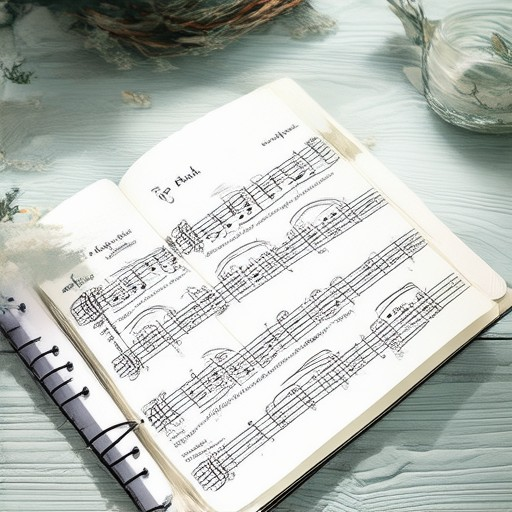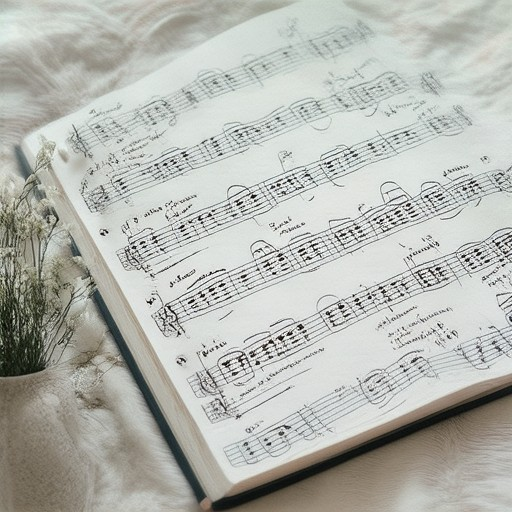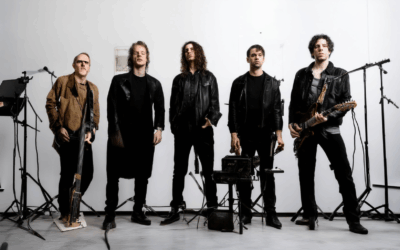Songwriting is an art form that requires dedication, creativity, and a willingness to grow. For those who feel stuck in their current process, songwriting workshops offer a transformative experience. These workshops provide structured guidance, expert insights, and a supportive community to help you elevate your craft. Whether you’re a seasoned songwriter or just starting out, participating in workshops can unlock new creative pathways, refine your technical skills, and connect you with like-minded musicians. From mastering the 80/20 rule to exploring the rule of three, these sessions cover essential concepts that can revolutionize your approach. Additionally, they serve as valuable networking opportunities, opening doors to collaboration and inspiration. Whether you’re searching for workshops in New York City, Nashville, or online, finding the right program can be a game-changer for your songwriting journey. Don’t miss the chance to immerse yourself in a world of musical creation and discovery.
Key Takeaways
– Age isn’t a limit; experience enhances creativity and adds depth to songwriting.
– Songwriting workshops offer expert guidance, collaboration, and feedback for growth.
– Workshops come in various forms—from general to specialized, online to intensive—to suit different learning styles and goals.

The 80/20 Rule in Songwriting
The 80/20 rule in songwriting is a concept that highlights the importance of focusing on the most impactful elements of your composition. According to this principle:
- 20% of the effort creates 80% of the result. This means that the initial spark or core idea of your song accounts for the majority of its impact and appeal.
- Once the core idea is identified, the remaining 80% of your time should be dedicated to refining and developing this idea. This includes refining lyrics, melodies, and structure to bring the song to its full potential.
This rule is particularly useful for songwriters because it emphasizes the importance of capturing the essence of a song early on. Here’s how it can be applied:
- Capture the Spark: Spend time brainstorming and experimenting with ideas until you find the core concept that resonates with you. This might be a memorable melody, a powerful lyric, or a unique arrangement.
- Refine with Intention: Once the core idea is identified, dedicate your energy to enhancing it. This could involve refining lyrics, adding layers to the instrumentation, or perfecting the song structure.
- Balance Creativity and Refinement: While it’s crucial to focus on the core idea, avoid overworking the initial concept. Allow room for creativity and exploration once the foundation is solid.
By applying the 80/20 rule, songwriters can enhance their efficiency and productivity, ensuring that their creations have a stronger impact and are more polished. Remember, the goal is to spend your time wisely, capturing the magic moments that define your song while refining the details to make it exceptional.
The Rule of 3 in Songwriting
The Rule of 3 is a fundamental principle in songwriting that emphasizes the importance of repetition and variation in creating a memorable and engaging melody or hook. This technique involves repeating a specific phrase or motif three times before introducing variations to it.
Here’s how the Rule of 3 works:
- Repetition Phase: Start by playing or singing a short phrase or motif repeatedly. This phase reinforces the melodic element in your listener’s mind, making it easier to remember.
- Variation Phase: After establishing the repetitive element, introduce variations. Each variation should be slightly different but still retain the essence of the original phrase. This prevents the song from becoming monotonous and keeps the listener engaged.
Examples of the Rule of 3 in Action:
One well-known example of the Rule of 3 is The Beatles’ “Hey Jude.” The song features a repetitive “na na na” sequence that is varied each time before transitioning into the final chorus. Another example is Beethoven’s Fifth Symphony, where the opening four notes are repeated three times before moving to the next musical phrase.
This technique is particularly useful in popular music genres like rock and pop, where catchy hooks and memorable choruses are essential for commercial success. By applying the Rule of 3, songwriters can create structures that are both familiar and interesting, ensuring their compositions stand out to listeners.

Are Songwriting Camps Worth It?
Songwriting camps and workshops offer numerous benefits for aspiring musicians and songwriters. These events provide unique opportunities to grow your skills, connect with fellow creatives, and gain valuable insights into the songwriting process.
Benefits of Attending Songwriting Camps
- Networking Opportunities: Meet like-minded songwriters, producers, and industry professionals who can offer feedback, collaborations, and career advice.
- Expert Feedback: Workshops and sessions led by experienced songwriters and industry experts can help you refine your craft and identify areas for improvement.
- Creative Inspiration: Immersing yourself in a supportive environment filled with diverse musical styles and perspectives can spark creativity and open up new ideas for your songs.
- Skill Development: Learn techniques, tools, and strategies from professionals, such as lyric writing, melody composition, and production tips.
Who Should Consider Attending Songwriting Camps?
- Emerging Songwriters: Perfect for those just starting out and looking to build a strong foundation in songwriting.
- Songwriters Seeking Inspiration: If you’re feeling stuck or need a fresh perspective, these camps can reignite your creativity.
- Collaborative Writers: A great place to find partners for joint projects or to explore different musical directions.
- Aspiring Professionals: Songwriting camps can also serve as a stepping stone towards building a career in music, offering insights into the industry and potential networking opportunities.
How to Choose the Right Songwriting Camp
- Research Reputation: Look for camps with a strong track record and positive reviews from past attendees.
- Faculty and Speakers: Check who will be leading the sessions. Experienced professionals can significantly enhance your learning experience.
- Location and Facilities: Consider the setting—whether it’s an urban retreat, a beach destination, or a state-of-the-art studio.
- Duration and Structure: Some camps offer intensive programs, while others may be more relaxed. Choose based on your availability and goals.
- Cost and Inclusions: Compare pricing, accommodation options, and additional perks like meals or equipment access.
- Size of Group: Smaller groups often allow for more personalized attention, while larger settings may offer a broader network.
Conclusion
Songwriting camps are definitely worth it for anyone serious about their craft. They provide invaluable opportunities to learn, grow, and connect with others in the music industry. Whether you’re looking tohone your skills, find inspiration, or network with fellow creatives, these experiences can be transformative for your songwriting journey.

Is 30 Too Old to Be a Songwriter?
Age is not a barrier to becoming a successful songwriter. Many renowned songwriters began their careers in their 30s or even later, demonstrating that creativity and success know no age limits.
- Leonard Cohen released his debut album in his late 20s, but his career flourished well into his 70s, showcasing that age enhances his artistic depth.
- Diverse genres offer opportunities for songwriters of all ages. For instance, classical composers like Mozart and Chopin achieved fame in their 30s, while modern pop stars like Dua Lipa and Billie Eilish started in their teens.
- Mentorship and collaboration can bridge generational gaps. Older songwriters often team up with younger producers and co-writers to innovate and remain relevant.
- Persistence and adaptability are crucial. Success isn’t solely determined by age but by dedication, talent, and seizing opportunities.
- Lifexperiences enrich songwriting, adding emotional depth and relatability to lyrics, as seen in many heartfelt tracks by seasoned writers.
Thus, 30 is not too old to embark on a songwriting journey. Age brings wisdom and experience, contributing to unique and impactful artistry.
Improving Your Songwriting Skills Through Workshops
Workshops are an excellent way to enhance your songwriting abilities, offering structured learning and feedback opportunities. Here are some top tips to make the most of these experiences:
Why Attend Songwriting Workshops?
- Learn from Experts: Gain insights from experienced songwriters who can share techniques and strategies.
- Collaborate with Peers: Network with fellow musicians and collaborate on projects.
- Receive Feedback: Get constructive criticism to improve your craft and explore new perspectives.
- Explore Different Genres: Engage with diverse musical styles and approaches.
Top Tips for Success
- Choose the Right Workshop: Look for reputable programs led by established songwriters or industry professionals. Consider options like Oedipus Band ‘s resources for comprehensive learning.
- Focus on Specific Areas: Whether it’s lyrical writing, melody composition, or storytelling, tailor your attendance to meet your goals.
- Seek Regular Feedback: Participate actively in group discussions and share your work for critique sessions.
- Practice Consistently: Don’t just attend workshops—apply what you learn daily to refine your skills.
- Collaborate and Exchange Ideas: Engage with other participants to brainstorm ideas and explore creative possibilities.
- Listen to Successful Songwriters: Pay attention to guest speakers and their approaches to songwriting during Q&A sessions.
- Stay Inspired and Curious: Approach every session with an open mind and ask questions to deepen your understanding.
- Network with Like-Minded Individuals: Build connections that can support your future projects and collaborations.
How to Make the Most of Your Experience
- Prepare Thoroughly: Bring your own songs or projects to workshops for hands-on learning.
- Be Open to New Perspectives: Embrace diverse opinions and adjust your approach accordingly.
- Document Key Takeaways: Note down important tips and strategies to revisit later.
- Engage with Facilitators: Ask questions and seek mentorship opportunities during and after sessions.
By participating in songwriting workshops, you unlock the potential to grow as a songwriter. Whether through Oedipus Band ‘s resources or other reputable programs, these experiences offer invaluable learning and networking opportunities.

How to Enhance Your Songwriting Skills Through Workshops
Workshops are an excellent way to elevate your songwriting abilities, offering structured learning and inspiration from experienced professionals. Here are some effective approaches to getting the most out of these opportunities:
- Attend General Songwriting Workshops – These are a great starting point for building foundational skills. Look for programs that cover essential aspects like lyric writing, melody composition, and storytelling techniques. Platforms like Oedipus Band often host comprehensive sessions tailored for all levels.
- Join Specialized Genre-Specific Workshops – If you’re passionate about a particular style of music, consider enrolling in workshops focused on genres like hip-hop, rock, or folk. These sessions often delve deeper into the unique demands of each genre, helping you develop a more authentic sound.
- Participate in Online Songwriting Courses – Virtual workshops allow you to learn at your own pace, offering flexibility for busy schedules. Many platforms provide interactive tools and feedback systems that can significantly boost your creativity and technical skills.
- Engage in Community-Based Workshops – Collaborative environments can be incredibly rewarding. Workshops that encourage group participation and peer review provide valuable networking opportunities while fostering new ideas and perspectives.
- Sign Up for Masterclass Sessions – These high-level workshops often feature renowned songwriters sharing their expertise. They’re ideal for gaining insights into professional practices and receiving personalized feedback on your work.
- Join Retreats and Residencies – Intensive weekend retreats or extended residencies allow you to immerse yourself in the creative process. These settings often lead to breakthroughs and inspire fresh approaches to songwriting.
When selecting a workshop, consider factors like the instructor’s background, the program’s structure, and the size of the group to ensure a supportive learning environment. Remember, consistent practice and application of the techniques learned will be key to your progress.
Ready to take the next step? Explore our curated list of songwriting resources and find the perfect workshop to advance your craft today!



0 Comments